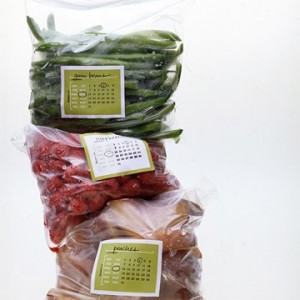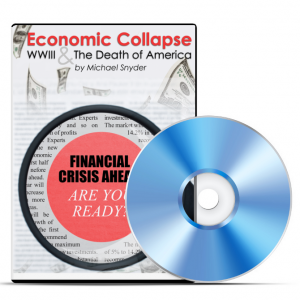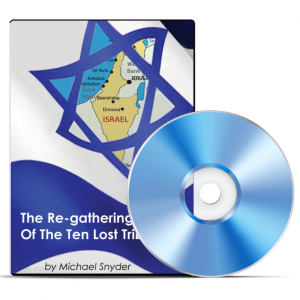 If you have the space, it makes good sense to keep an emergency stockpile of food - recent disasters such as the East Coast’s Hurricane Sandy or Oklahoma’s spat of devastating tornadoes just reiterate the
If you have the space, it makes good sense to keep an emergency stockpile of food - recent disasters such as the East Coast’s Hurricane Sandy or Oklahoma’s spat of devastating tornadoes just reiterate the
need to have a supply of food and water in case the unimaginable occurs.
However, as with everything else, there’s a right way and wrong way to build this supply. Letting the stockpile languish means food and water can expire, creating waste that will be of no help when you really need it. Instead, employ tactics that ensure you won’t waste the food - and, by proxy, waste your hard-earned money.
Stockpile Nonperishable Foods
This seems like a no-brainer, but it’s worth mentioning. While a stockpile of frozen meats, grains, and other perishable foods is helpful for your family when your food budget dwindles, those products won’t be
of use to you if the power and water supply goes out.
If your main concern is just getting items on sale, then use your freezer to its full advantage, noting that frozen foods can still expire - uncooked poultry lasts for nine months, seafood lasts three to six months, and uncooked red meat is good for four months to a year, depending on the variety.
If your aim is to stockpile for a potential disaster, though, focus on building up a supply of nonperishable items.
Rotate the Food
Mark the expiration date of each piece of food you stockpile - after all, expired food doesn’t do you any good. When the expiration date draws near, pull it out of the stockpile and feed it to your family. Even water can go bad because the plastic bottles break down. Rotate in a fresh version of that food, ensuring that if you need to dig into your stockpile, it won’t be wasted, bad food.
Use Proper Containers
If bugs make it into your stockpile of flour, sugar, rice, or pasta, you can wave goodbye to it. Choose air-tight, sealed containers to make sure that your ingredients stay dry and bug-free. Check out the containers the food comes in, too. Although you can get a deal on dented canned items, any damage destroys the integrity of the container, particularly if the damage is near the seams. The flaws in the can could
allow bacteria to grow, making the food unsafe to consume.
Check the Atmosphere
Bacteria also thrives in damp, warm environments. To avoid food waste, keep your stockpile in a cool, dry location, such as a closet or temperature-controlled basement. If the temperature in your house soars,
you might need to pitch the food - E. coli and salmonella could lurk within.
Only Buy What You Eat
In times of crisis, you’ll likely eat nearly anything - even if you’re not a fan of canned green beans, it’s nourishment. However, in order to avoid waste, you’ll need to occasionally eat the food while rotating
items out of the stockpile. That means that if no one in your family would dare touch those green beans outside of a catastrophe, it’s simply wasted money.
Kelsey Castle is a freelance writer and editor who focuses on home and business topics, including handling negative Google reviews. She has a degree in journalism.
Picture Credit Visit marthastewart.com
Visit Food Freezer Meals- Mandi Roberts Pinterest page










